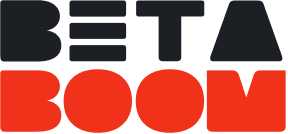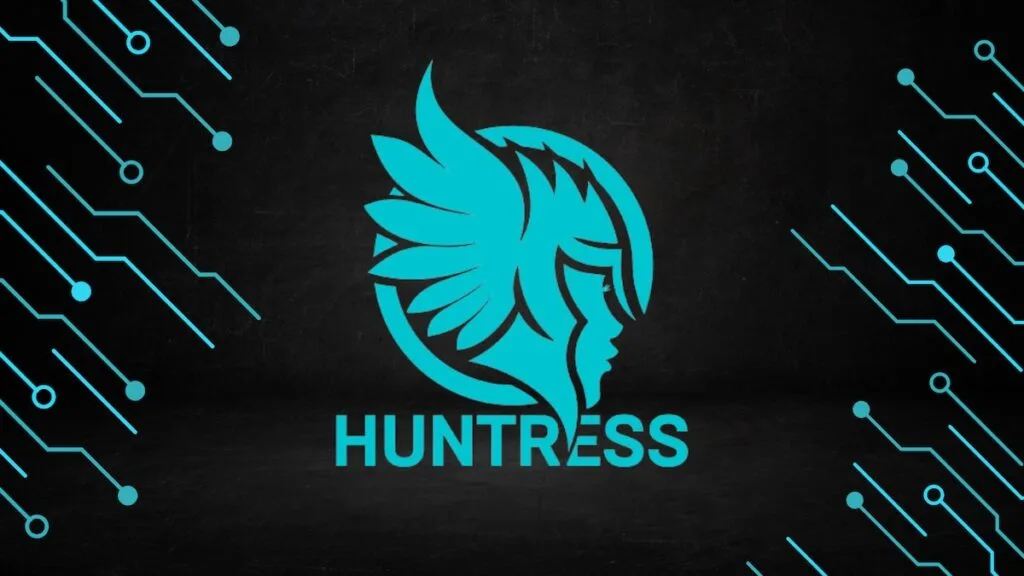In this first episode of the New Pattern Spotlight series, Kimmy speaks with Jude Chiy, the founder and CEO of Flamingo, which lets property managers offer residents a plethora of services ranging from housekeeping to cooking classes. Kimmy and Jude discuss building a quickly-growing tech startup in Chicago, the advantage of being an underrepresented founder, and Jude's founder journey.
From Healthcare to Housing: Finding a Bigger Impact
Kimmy: Hi Kimmy here, and I'm here at Wicker Park in Chicago with Jude Chiy, founder of Flamingo. So Jude why don't you tell me about Flamingo and who you are.
Jude: Yeah so Flamingo is a resident engagement platform, we basically provide a platform for apartment buildings that includes a white-labeled app that residents can use for everything from rent payment to booking a house cleaner.
Kimmy: So tell me about how you, why you started working on this and how long you've been working on it.
Jude: Yeah so I've been working on this for about four years, it's changed a lot from the initial vision. When we first started it was focused on wellness. So looking at bringing wellness where people live, work and play, my passion for wellness came from my background in health care. So I always wanted to become a doctor but in college realized I could have a bigger impact on more the prevention side of health care.
So I decided to start this company to make it much easier for people to get healthy, so when I started the goal was bringing wellness where people live work and play. So apartment buildings were part of our target market. But after I'd been exposed to that market, and realizing that there's a lot more opportunity for what you could do, we decided to become a full engagement platform so not just fitness, but making life easier for residents from all parts of what they need. For example, if you don't have to spend a lot of time cleaning your apartment it means you have more time to go actually work out. So we decided a full engagement platform is the best approach to actually impacting wellness.
The All-Consuming Startup Life
Kimmy: Amazing, so moving from doctor to startup founder is kind of a big jump, what's been the most surprising thing about being a founder and running your own startup?
Jude: The most surprising thing which I think it shouldn't really be a surprise, is just how all consuming it is. So you go in knowing that starting a company's a lot of work but it's hard to account for how all consuming it is. Like at 11 am or 11 pm you're thinking work, work, work, work it doesn't matter what time of the day. So that to me was actually a surprise, yeah.
Kimmy: How do you work through that are there things that you do to get away from it and to kinda give yourself a break?
Jude: Yeah so what is actually nice about being a founder of a company is that you have a lot of different parts of the company so at one time you're focused on sales, at another part you're focused on actual operations, another part is focused on something completely different. So while you are doing a lot you're doing a lot of different things where it doesn't feel as bad and for me part of that is just balancing everything while still trying to do all the things that I do that I enjoy like running, biking, swimming the regular things.
Picking Your Battles: The Focus Challenge
Kimmy: What for you has been the hardest part about this journey?
Jude: I would say the hardest part has been trying to figure out what direction to take. You know where you wanna take the company, but there are always so many different things you could do that you have to be like no, that's important but it's not as immediate or as important as this. So that's always a challenge is there are always things to do, a lot of directions you can take the company, a lot of things you could focus on but you just have to kind of pick and choose and that becomes really challenging because, you have a lot of great ideas. A lot of things that you wanna implement but you really have to pick and choose really specifically.
Customer Obsession as the North Star
Kimmy: Are there people that have been very instrumental in your journey that maybe have helped you with that, picking the priorities or have gotten you this far?
Jude: Yeah absolutely. So luckily our customers are pretty vocal and we are pretty proactive with getting feedback from them and that has made it much easier where you are like, what's actually going to benefit you? Is it this feature, or this feature, or this feature? And a lot of people are very vocal with that they like. So they immediately go okay I really think that's cool, but from the customer side of things this is way more important and way more impactful.
Kimmy: So you're staying very close to your customers. Are they all here in Chicago? Or how do you stay connected to them if they're distributed?
Jude: Yeah so we have customers all over the U.S. They're from DC to San Fran, so part of what we do, is we do regular quarterly check ins with each of our customers, and then we have a couple sets of customers. We have the property managers, and then we have the residents in the building, and then we have our providers. So for each of those sets we have regular check-ins. For the residents it's a resident after every event or after every action they take. So if they attend a fitness class or if they book a house cleaner they get a survey so we know how things are going.
Jude: For the property managers we do quarterly check ins, whether that's a survey or that's just calling them, and then we send out regular emails just to make sure that things are going well, usually we say what things should we keep doing? What things should we stop doing, and what things should we start doing? So that really helps us get really honest, and great feedback.
Putting Customers First: The White Label Decision
Kimmy: That's great that you're continuing to hear from them. What could you point out maybe as your proudest achievement so far? Especially since you've been so close to the customer, is there something that you really point to, like I'm really proud of, that we've done this?
Jude: I think one of the proudest moments for us, was deciding that it made more sense to focus on our customers brand versus our brand. So one of the things that we provide to our customers is a white-labeled app, so the app itself is completely white-labeled from our perspective, it's not that good because it doesn't really promote our brand but from the customer side it's a great thing. Because they get to stand out essentially, and that's why the name of the company's Flamingo, because we help them stand out.
Building in the Midwest: The Chicago Advantage
Kimmy: Awesome, I like that. So shifting gears a little bit, I've mentioned Chicago a couple times, you are based here, and building your company here. How has it been running a startup here, versus somewhere else like Silicon Valley or anywhere else? What are the advantages or disadvantages from being in Chicago?
Jude: Yeah so it's hard to kinda say what the disadvantages would be because I haven't had a chance to actually build a company in those different places. So I can speak more on Chicago. So far it's been a great city to be based out of, one of it is geography, it's really easy to go to different cities from Chicago. So to get to the Bay Area or to get to the East Coast, everything's less than a three hour flight, and that makes it really easy because our customers are pretty spread out, so to go to those visits it's much easier travel-wise, and then Chicago itself is just a really great city, it's the third largest city in the U.S. But it's really affordable, so we have all the different neighborhoods, but everything is still pretty close to the downtown area. So it makes the city itself really really affordable, as opposed to the Bay Area where it's a challenge to live there for anyone. So that makes Chicago just great in all those aspects, but obviously compared to the Bay Area you don't have as many people in the tech scene meaning the whole ecosystem isn't as developed as you might have in New York or the Bay Area.
Kimmy: Fair enough, yeah. So what have you done with that then? Do you have a group that you turn to here, or how do you find solidarity when this can be a lonely journey?
Jude: Yeah so Chicago isn't, while Chicago is not as developed as the bay area there's still a pretty nice ecosystem so you have 1871, you have Mather, you have a few different universities that do different programs around entrepreneurship. So that still provides you with a pretty decent ecosystem to turn to, and like anything else, if you're proactive you are going to find your people.
The Data Revolution in Real Estate
Kimmy: For sure, for sure, and so where do you want to take the company? Where do you see yourself in a year, or really far down the line, 20 years from now?
Jude: It's hard to say 20 years from now, but for us a year from now is continuing to really develop our product, to make it even better for our customers, like I was saying there are a lot of features that you wanna add. But you don't necessarily have the time or priority to. So we have a lot of those things to add, to really make it a lot more customer-friendly and then just continue to grow our customer base.
20 years from now, we have thought about 20 years from now. So one thing that we see in the apartment industry is that the data in the industry's really important. But right now it's not really well developed, so one of my predictions is that 20 years from now, the data is actually going to be more important than the monthly rent that the property managers are charging. Because in the building, residents are doing so many different things being able to capture that and understand how that impacts what development looks like what the things you provide in the apartment looks like. That's really tremendous, everything from do we actually need a fitness center or should we focus on having a pool? Or should we have this? Because right now all the buildings have an amazing amount of amenities but they don't really know which of those are more important to a resident.
So being able to really capture that data is something that we are starting to build into our platform.
Best Advice: Be Close to Your Customers
Kimmy: So also along this journey you tend to get many people throwing advice at you. You get it everywhere, I'm wondering from your perspective what's the best advice you've received? And what's the worst advice you've received?
Jude: I would say the best advice I've had is just be really close to your customers, and that came from the old company I used to work for, the Cancer Treatment Center of America. One of the most amazing parts of the company is just how much time they spend on customer development, so really understanding everything about a cancer patient. What do they care about? What are all the things that impact their life, not just the cancer, just for example one of the things that really blew my mind when I first started working there was how much time they spent to decide what carpeting to use at one of the hospitals. Something that small they spent a lot of time on, to know how is this going to impact patients? Is this something that actually makes a difference to them? So I learned a lot from that just knowing that you have to constantly pay attention and get feedback from your customers.
In terms of worst advice, I don't think I've gotten any bad advice, it's like anything else. Everything has some nuggets there are things that you learn to ignore but mostly it's figuring out what's going to help and what's not, and then kinda just trying things out.
Standing Out as an Advantage
Kimmy: The journey for a founder can be challenging and it's sometimes more challenging for underrepresented founders. I'm wondering from your perspective, what advantages have you found from being an underrepresented founder?
Jude: So I think one of the big advantages, it's like anything else you stand out. So I say stand out a lot because that's really our company brand is how do you stand out? So being an underrepresented founder you always stand out, so if it's presenting to an investor, if it's talking to a customer, you always stand out because it's something that they haven't really seen a lot before. So I actually use that to my advantage because it gives you that opportunity to leave them with this impression like, oh wow. That's not something I might have expected, so you end up just standing out more in their mind.
Words for New Founders
Kimmy: So what advice would you give somebody whose in your shoes? Underrepresented or not, that's thinking about starting up a customer or is early in their journey?
Jude: Yeah so one thing I always say is go in knowing that it is a lot of work, so you do have to spend a lot of time on a lot of things that you might not necessarily enjoy. But if you are doing something you truly believe in, it really helps so it makes things much easier and then the other thing is just really pay attention to your customers, this is a cliche advice. But at the end of the day that's actually what matters, is this something your customers are going to use or care about? 'Cause if it's not then your pretty much just lying to yourself.
Kimmy: So final question if I had a genie and a bottle for you today, what would you wish for?
Jude: Infinite customers! No, but in seriousness, I think for Chicago, it is definitely having a more connected tech ecosystem, so just making it easier which is what you guys are already doing, making it easier to find investors. Making it easier for investors to know this company exists, so I think that process still isn't as optimized as it needs to be.
Kimmy: Well that's great, well I like that wish and thank you all for joining today, again this is Jude from Flamingo.





